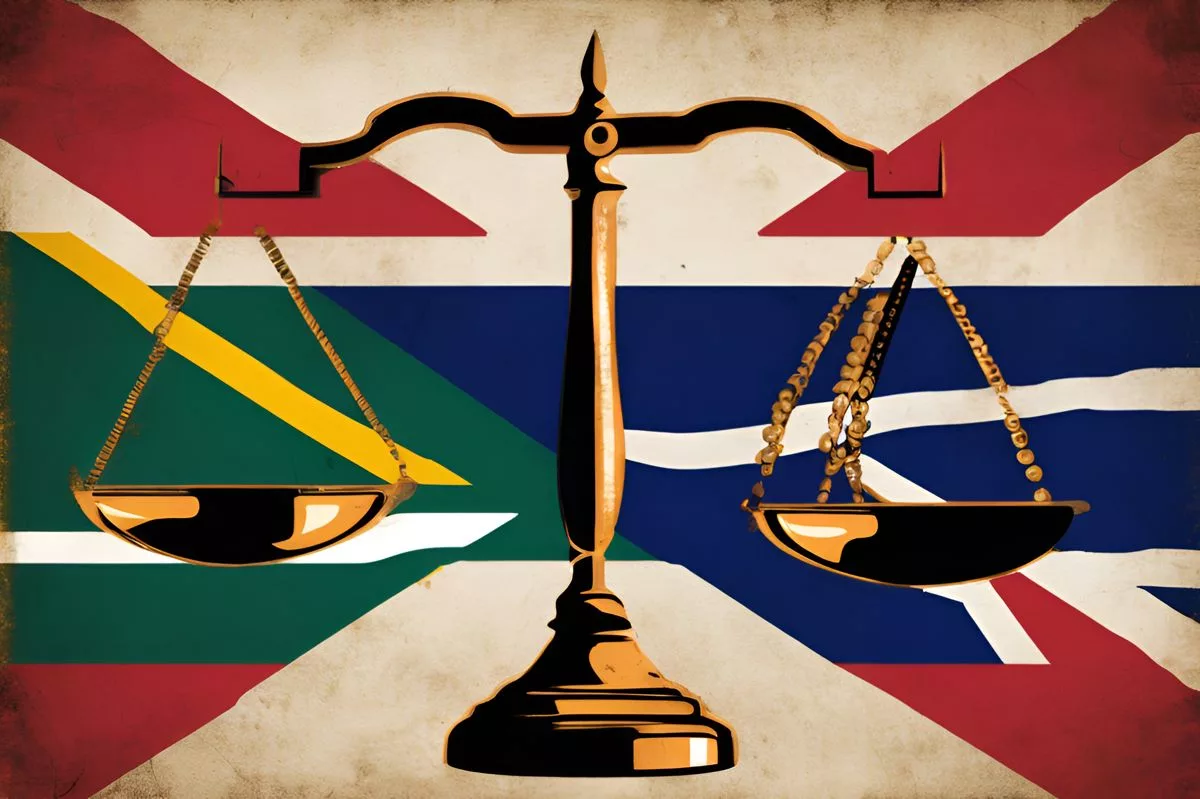Willem Heath is a key figure in South Africa’s fight against corruption, known for his dedication to justice and transparency. Born in 1945, he started his legal journey as a prosecutor and gained fame for leading important investigations, including the Health Commission of Inquiry. Heath later headed the Special Investigating Unit, working hard to expose misconduct in government. He transitioned to private practice, advising high-profile clients and navigating complex legal challenges. His legacy is one of determination and integrity, leaving a lasting mark on South Africa’s judicial landscape.
What is Willem Heath known for in South Africa’s legal landscape?
Willem Heath is known for his significant contributions to South Africa’s legal system, particularly as a champion against corruption. His roles included leading the Health Commission of Inquiry and the Special Investigating Unit, where he promoted transparency and accountability while handling high-profile cases and advising political figures.
Early Life and Legal Foundations
Willem Heath emerged as a formidable force in South Africa’s legal realm, leaving a lasting impact on the nation’s judicial system. Born in 1945 in Boksburg, Heath embarked on his legal journey at the University of Pretoria. There, he obtained two legal degrees, establishing a solid educational foundation for his future endeavors. These formative years were pivotal as they set the stage for his later roles, where he would confront intricate legal challenges and address systemic corruption with steadfast commitment.
Heath’s career commenced in the vibrant city of Pretoria, where he began his professional life as a prosecutor. This role allowed him to sharpen his legal skills, preparing him for more daunting challenges. His early experiences in the courtroom molded his legal intellect and fueled his dedication to justice. Before long, he transitioned to private practice as an advocate, earning a reputation for meticulous legal analysis and an unwavering commitment to justice. His growing influence soon caught the eye of South Africa’s top political leaders.
Leadership and Anti-Corruption Initiatives
The mid-1990s marked a pivotal chapter in Heath’s career. In 1995, Nelson Mandela appointed him to head the Health Commission of Inquiry, a role that highlighted his expertise and trustworthiness. This commission aimed to investigate corruption and governance failures in the Eastern Cape. Heath’s diligent work exposed widespread malpractice within administrative systems, bringing long-standing issues to light. His leadership at the commission exemplified his dedication to promoting transparency and accountability in government operations.
Building on his success, Heath took on the leadership of the Special Investigating Unit (SIU) in 1997. For the next four years, he led efforts to uncover misconduct across various sectors. His investigative skills earned him a reputation as a stalwart against corruption, and his efforts underscored systemic inefficiencies while paving new paths for justice and reform. Under his guidance, the principles of accountability vital to democratic societies were reinforced, leaving a lasting influence on the country’s approach to governance.
Transition to Private Sector and High-Profile Cases
After his tenure with the SIU, Heath ventured into the private sector by founding Heath Executive Consultants. This firm specialized in forensic investigations and legal counsel, attracting a wide range of clients entangled in complex political disputes. His legal acumen and strategic insights drew high-profile figures, including notable mining magnate Brett Kebble. Heath demonstrated his adeptness in handling intricate legal matters when he played a key role in securing Roger Kebble’s release from temporary custody, showcasing his commitment to justice.
Heath’s legal brilliance extended to defending prominent political figures such as Jacob Zuma, the former President of South Africa. In 2005, amid corruption charges against Zuma, Heath was called upon to assess the case’s merits. His strategic advisory role during this critical period highlighted his ability to navigate politically charged legal landscapes. He offered counsel on how Zuma and the African National Congress (ANC) might address the allegations, further solidifying his influence and expertise in legal strategy.
Legacy and Lasting Impact
Throughout his career, Heath wielded his legal prowess with precision, carving out a niche as a champion of justice. His work often intersected with South Africa’s socio-political sphere, reflecting the tumultuous yet transformative post-apartheid era. Heath’s influence on the legal landscape was profound, consistently advocating for transparency and accountability while advising clients from diverse sectors.
Despite his numerous achievements, Heath’s career was not without controversy. His involvement in high-profile cases garnered both praise and criticism, establishing him as a formidable yet polarizing figure. His unwavering dedication to his clients and strategic legal defense often sparked debates on ethics and justice, particularly when defending contentious political figures.
Willem Heath’s legacy weaves a rich tapestry of tenacity, legal acumen, and integrity. His lifelong pursuit of justice offers a compelling narrative set against a backdrop of political intricacies and societal transformation. Heath’s journey through South Africa’s legal corridors provides valuable insights into the broader challenges of governance and legal reform in the post-apartheid era, encapsulating a period marked by both struggle and progress.
FAQ: Willem Heath – A Legal Titan in South Africa
What is Willem Heath known for in South Africa’s legal landscape?
Willem Heath is primarily known for his significant contributions in the fight against corruption within South Africa’s legal system. He gained prominence for leading the Health Commission of Inquiry and the Special Investigating Unit, where he focused on promoting transparency and accountability in government operations.
What were the key positions held by Willem Heath during his career?
Throughout his career, Willem Heath held several key positions, including serving as a prosecutor, leading the Health Commission of Inquiry in 1995, and heading the Special Investigating Unit (SIU) from 1997 to 2001. After his tenure with the SIU, he established Heath Executive Consultants, specializing in forensic investigations and legal counsel.
How did Willem Heath contribute to anti-corruption initiatives in South Africa?
Heath played a crucial role in investigating corruption and governance failures, particularly in his work with the Health Commission of Inquiry and the SIU. His investigations illuminated systemic issues within the government and emphasized the importance of accountability, promoting reform that had lasting implications for South Africa’s democratic processes.
What impact did Willem Heath have on high-profile legal cases?
Willem Heath’s legal expertise attracted numerous high-profile clients, including political figures and business leaders. Notably, he provided legal advice during the corruption charges against former President Jacob Zuma in 2005, assessing the case’s merits and advising on strategic responses, which showcased his ability to navigate complex legal landscapes.
Can you provide details about Willem Heath’s early life and education?
Willem Heath was born in 1945 in Boksburg, South Africa. He obtained his legal degrees from the University of Pretoria, where he established a solid educational foundation that prepared him for his career in law. His early experiences as a prosecutor in Pretoria honed his legal skills and fueled his commitment to justice.
What is Willem Heath’s legacy in South Africa?
Willem Heath’s legacy is characterized by his unwavering dedication to justice, transparency, and accountability. His work has influenced South Africa’s legal landscape, especially in the context of post-apartheid governance. Despite facing controversy, Heath is recognized for his contributions to the legal profession and his efforts to combat corruption, leaving a lasting impact on society and the judiciary.












